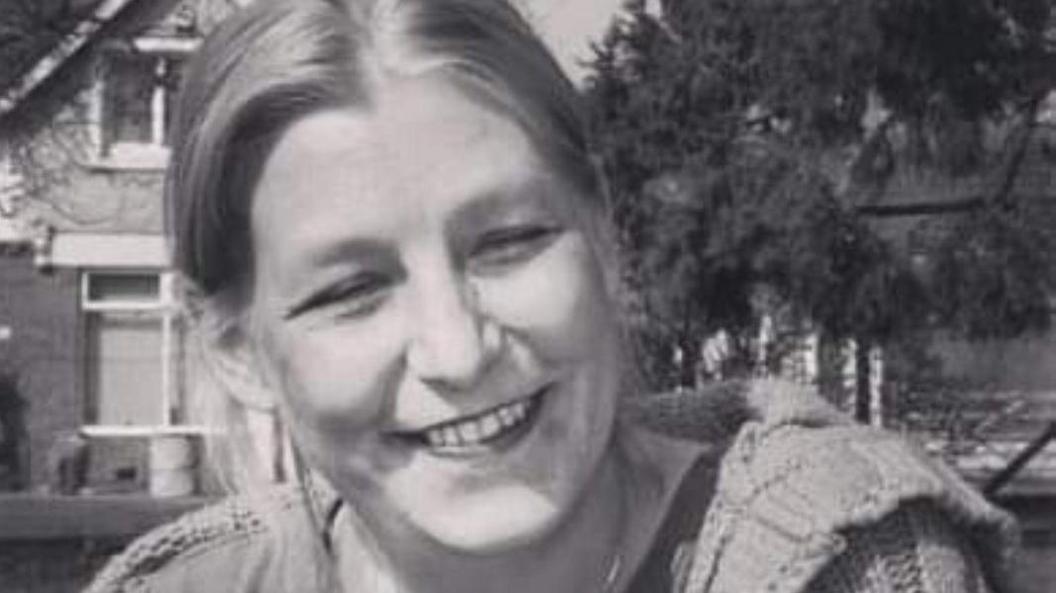'History made at Dawn Sturgess' rollercoaster inquiry'
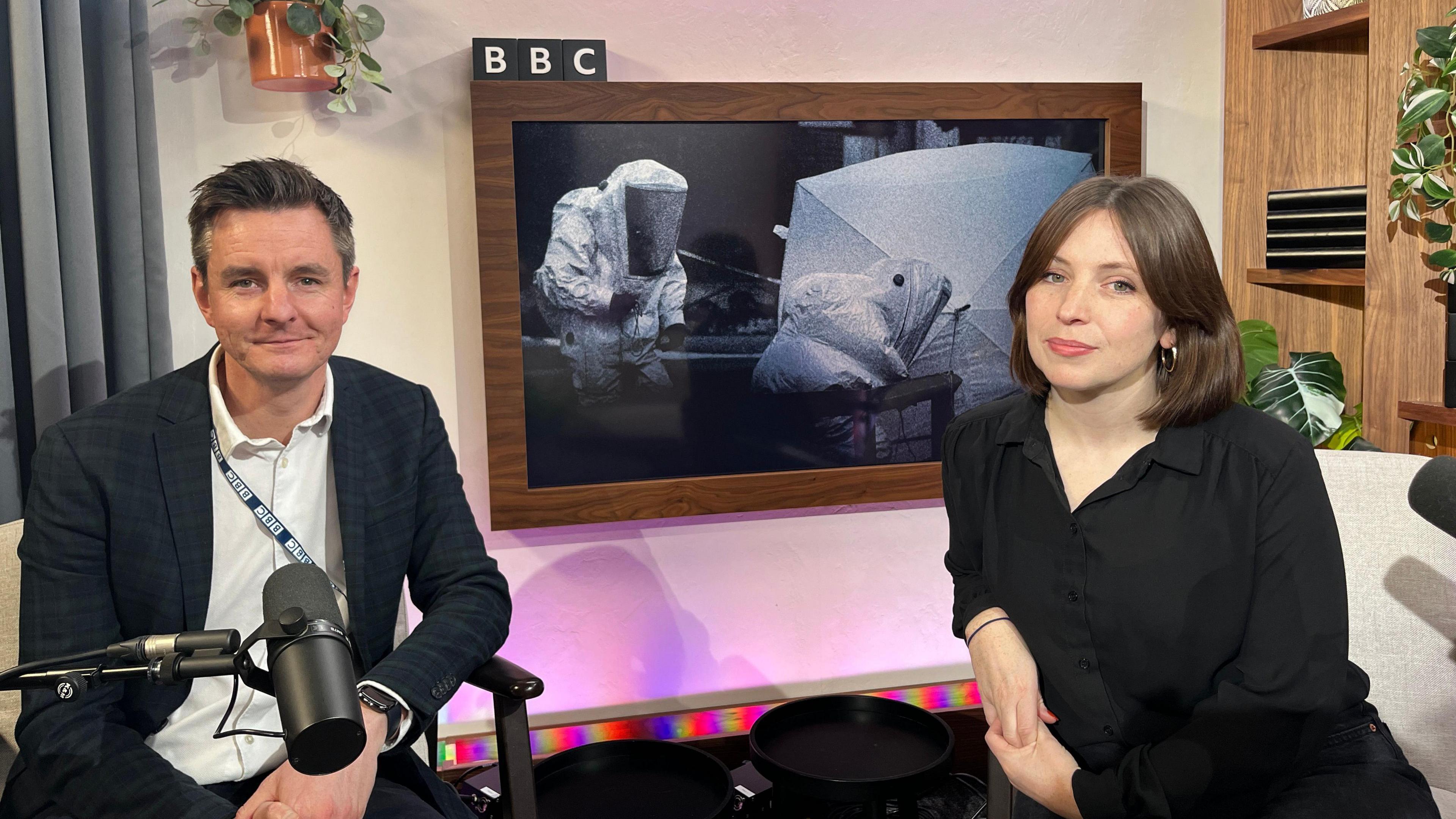
Andy Howard and Marie Lennon have been reporting from the six-week inquiry into Dawn Sturgess' death
- Published
Life has once again stood still for residents in Salisbury, a small city in Wiltshire that found itself at the centre of international attention in 2018 after an astonishing assassination attempt.
For the last six weeks, the Dawn Sturgess Inquiry has attracted the world's media, and for us, as journalists, attending and covering the inquiry each session brought with it a new revelation.
It was a rollercoaster of espionage and emotional family statements that have gripped all of those watching.
Walking through the big wooden doors of the Guildhall in October, you felt the gravity of holding an independent inquiry.
There were handheld scanners like you’d see at the airport, bag searches, and you could only take in a drink if you took a sip in front of the security guards.
There were large purple signs everywhere, with The Dawn Sturgess Inquiry written across them in bold white letters.
Opening the sessions, the chair, Lord Hughes, said above all else we must all remember why we were there, that Ms Sturgess - a 44-year-old mother-of-three - had lost her life in the Novichok attacks.
Extraordinary details
Although many local people welcomed the inquiry, before it even got going on that cold, damp morning, we overheard: “We know what happened, what’s the point of dragging all this up?"
The answer to that question is, of course, to put on record what really happened in 2018, and doing that felt like a big moment in the history of Salisbury.
The Guildhall usually hosts craft fairs, weddings, and art exhibitions; all of life was here.
Directly in front of where we sat to watch proceedings, there was a small plaque to commemorate the local men and women who appeared in that room as a result of the agricultural riots of 1830.
You got an immediate sense of history and time, and with it the realisation that the Novichok poisonings were now also a massive part of Salisbury, and this city’s timeline.
New revelations were constantly made - including that the former Russian spy Sergei Skripal wasn't on the radar of counter terrorism police and the fact that local emergency services had not been given additional training on the symptoms of nerve agent poisoning after the first attack on Mr Skripal and his daughter.
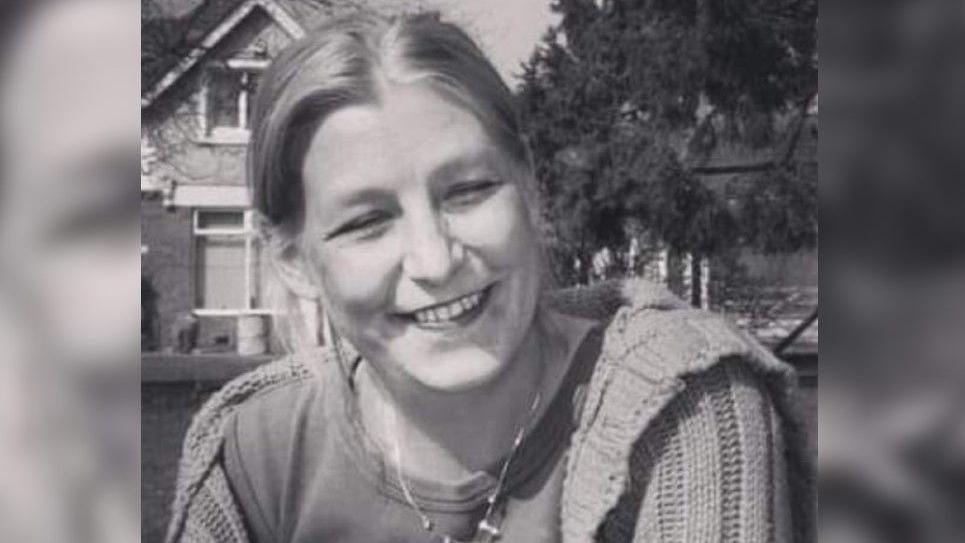
Dawn Sturgess died after she unknowingly sprayed herself with the nerve agent Novichok
As quickly as the inquiry had arrived in Salisbury, it then moved to London where more sensitive intelligence could be heard. It continued in the shadow of St Paul’s Cathedral, in a purpose-built, corporate building with all the mod cons.
Some of the sessions held there were more secret, with some of the witnesses’ names, faces and even voices hidden from the video feed.
Only three accredited journalists were allowed in, and even then we couldn't take in any electrical devices to communicate with the outside world, even smart watches had to come off. It was an old fashioned pen and paper reporting job.
Crime Next Door: The Salisbury Poisonings
Find out more about the Dawn Sturgess Inquiry with our podcast, including interviews with Theresa May and Neil Basu
Download every episode
Just witnessing this process was a rollercoaster.
We’d go from espionage and poisoned door handles, to the could-have-heard-a-pin-drop silence of Dawn’s mum Caroline reading her statement.
After her first sentence, "I’m Caroline Sturgess, Dawn’s mother", people watching around us let out a sigh, a human reaction to a parent having to stand up in such a high-profile setting and talk about her daughter’s death.
Her hand was shaking as she held her paper.
She described her daughter as "intelligent...extremely selfless and very kind person".
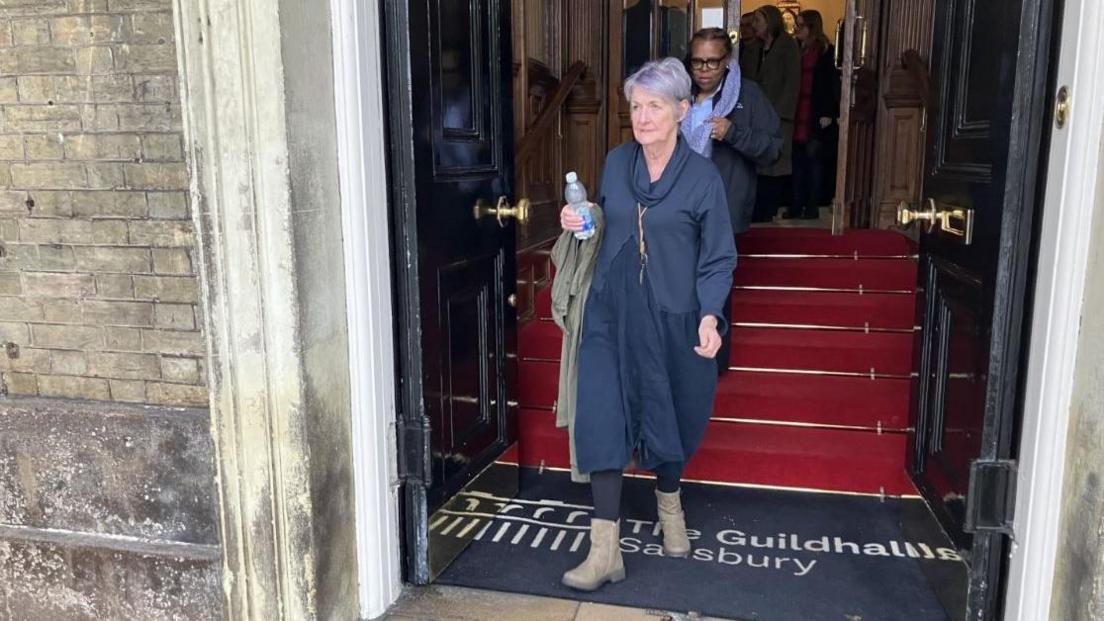
Caroline Sturgess described her daughter as "intelligent, funny and kind"
There were some truly shocking moments during the inquiry.
Everyone was surprised when we were shown fresh CCTV footage of the already-poisoned Mr Skripal handing a little boy a piece of bread to feed the ducks.
The little boy later fell ill but testing revealed no traces of chemical poisoning.
It was eerie to see the Russian suspects on CCTV looking at their mobile phones in the Salisbury snow, seemingly trying to find his house.
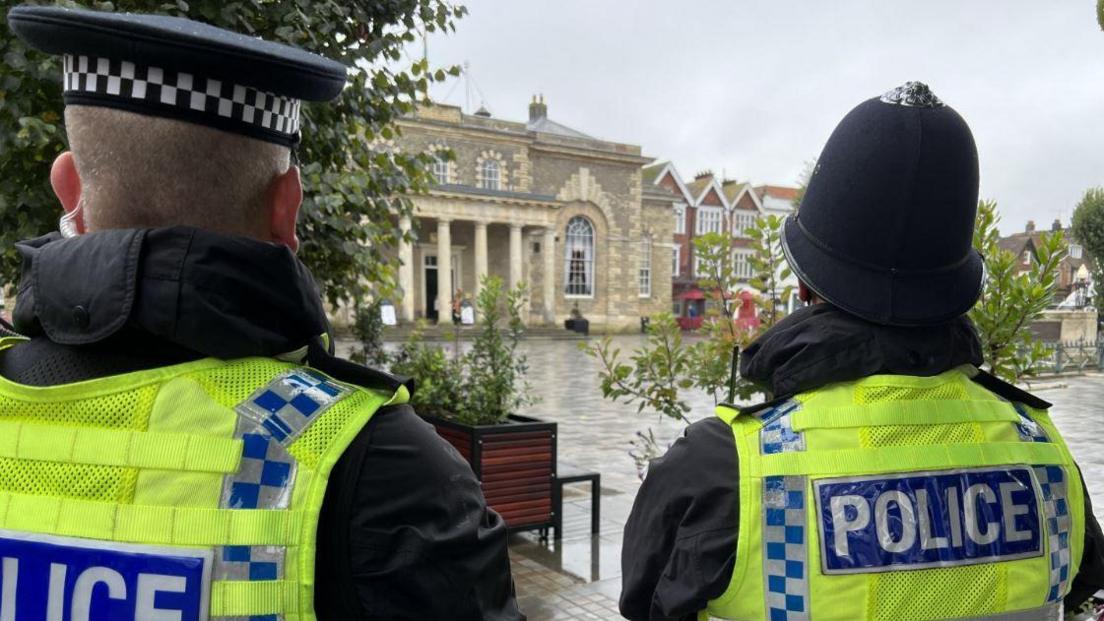
There was an increased police presence around The Guildhall in Salisbury while the inquiry happened
And it was truly a revelation to hear Mr Skripal's statement say "I never thought the Russian regime would have tried to murder me in UK, they could’ve killed me easily when in prison".
At the other end of the scale, we sat through some - on the face of it - very ordinary details.
We now feel probably too knowledgeable about Wiltshire Council bin routines, hospital staff shift patterns and the layout of city centre car parks.
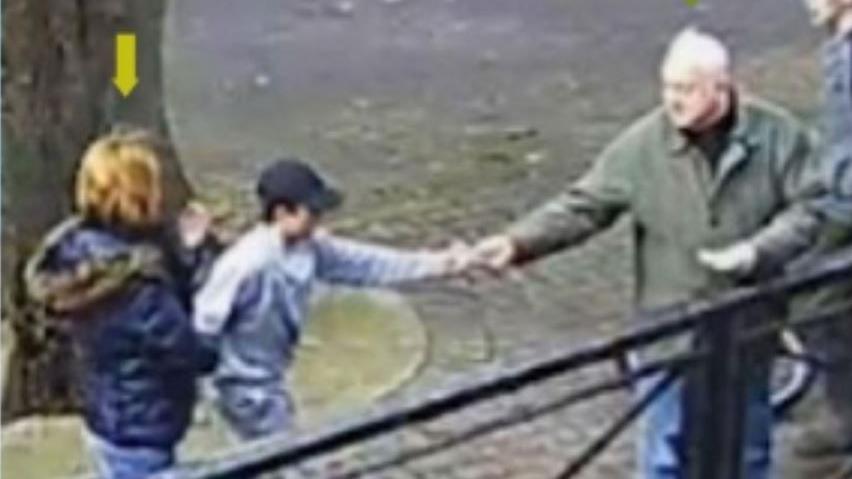
Sergei Skripal, who had already been poisoned, handed bread to a young boy feeding the ducks
At times, an inquiry can be a very formal process - it’s a room full of lawyers discussing the untimely death of a British citizen after all - but this has been punctuated by so much emotion.
The former Wiltshire Police Det Sgt, Nick Bailey, who fell ill after touching a door handle with nerve agent poison on, was visibly moved when asked about the impact the poisonings had on his life, only able to nod in silence and look to the floor.
He retired from the police force after the attack left him with ongoing health issues.
Some of the emergency service staff looked genuinely stressed about trying to remember details of what they did on a shift more than six years ago, almost like they were worried about saying the wrong thing.
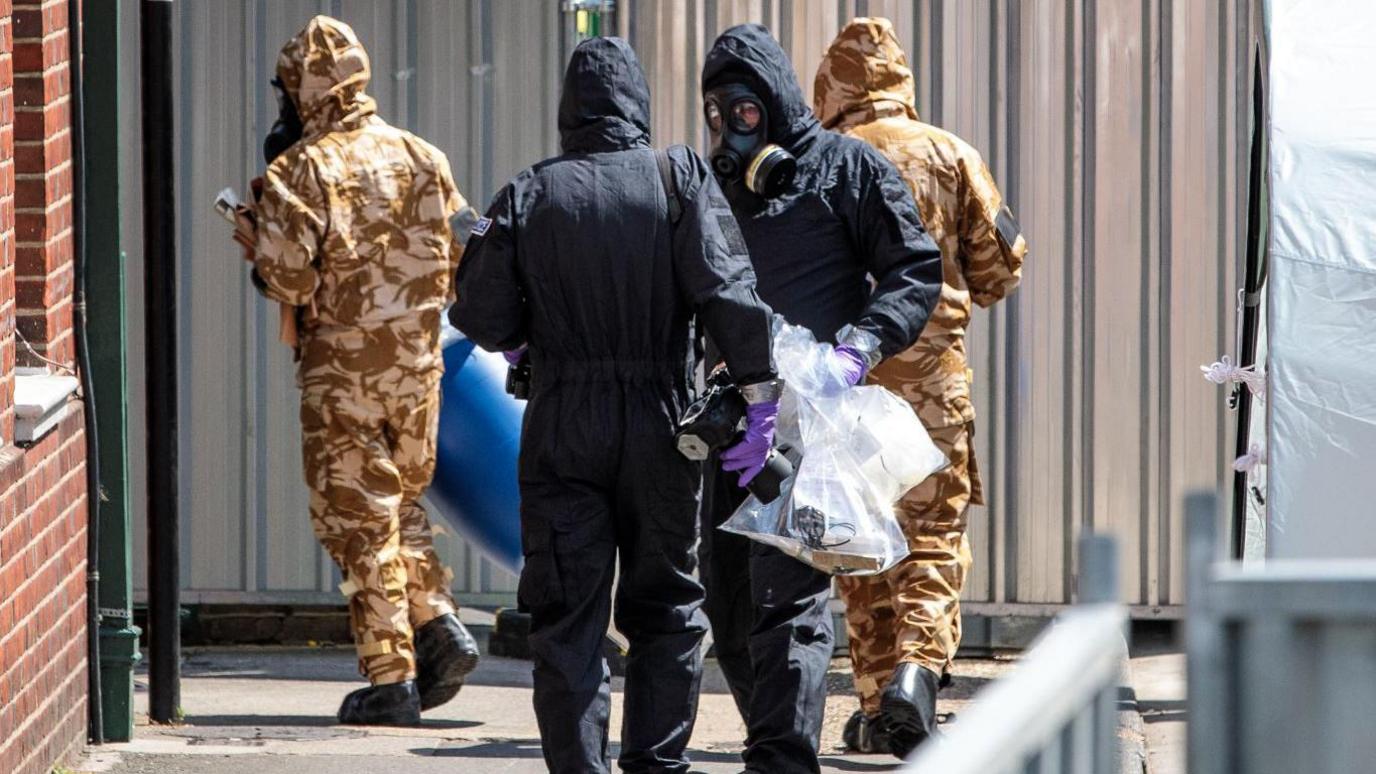
Members of the emergency services had to wear PPE during the incident in 2018
But there were also lighter moments.
Ross Cassidy, Mr Skripal’s friend and former neighbour in Salisbury, had a twinkle in his eye when recalling how they would drink and enjoy barbecues together.
"We certainly would,” he said with a grin.
He even raised reluctant smiles, and dare we say laughter, from the legal teams when he revealed that he may have exceeded the speed limit when bringing Sergei and Yulia back from Heathrow Airport.
He also reiterated the point when asked if he’d got home in very good time that evening.
He said: "Well as I said, I was speeding."
The counsel to the Inquiry, Andrew O’Connor KC, replied: "Well I wasn’t going to mention that Mr Cassidy."
One of the most striking accounts for us was from a paramedic, Ben Channon who was called to Charlie Rowley’s flat when he had fallen ill a few hours after Dawn Sturgess.
He was the first to make the point that he lived through the Salisbury poisonings and had seen it all happen.
He told the inquiry, yes, he was scared, for his patient, and for himself, and that fear was still evident in his testimony six years on.
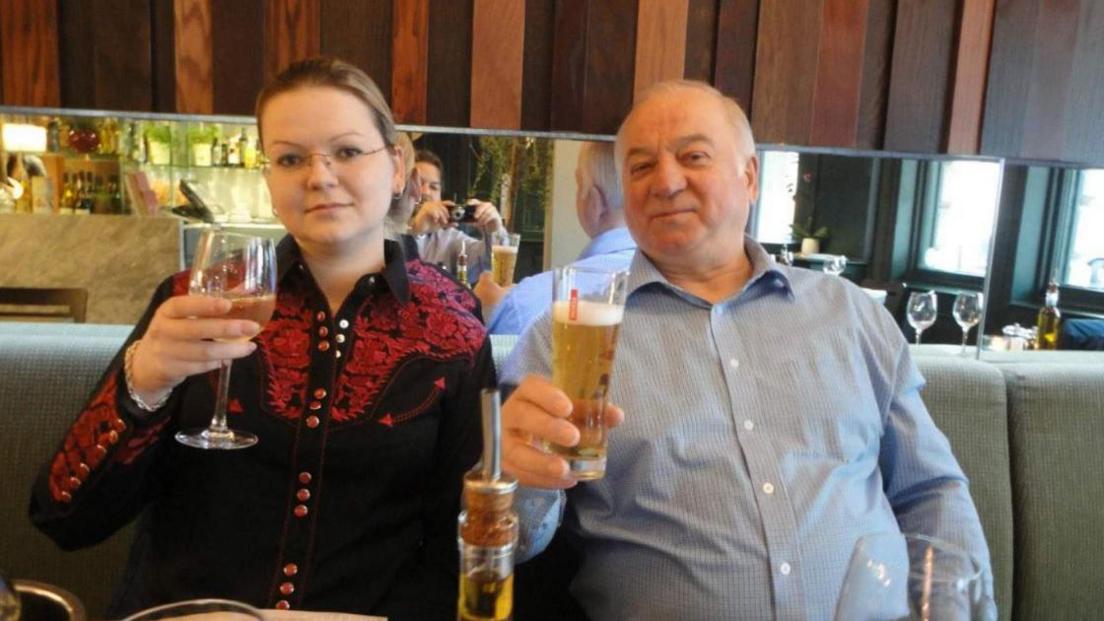
Sergei Skripal was living in Salisbury without Wiltshire Police knowing he was a former spy
Following the twists and turns of the inquiry it could have been easy to lose sight of why were there - and Lord Hughes' words rang in our ears throughout.
But making our podcast - Crime Next Door: The Salisbury Poisonings - we agreed that we would try to do Ms Sturgess and her family justice in the way we told this incredible story.
We hope we have been able to do that.
Follow BBC Wiltshire on Facebook, external, X, external and Instagram, external. Send your story ideas to us on email or via WhatsApp on 0800 313 4630.
See also
- Published11 October 2024
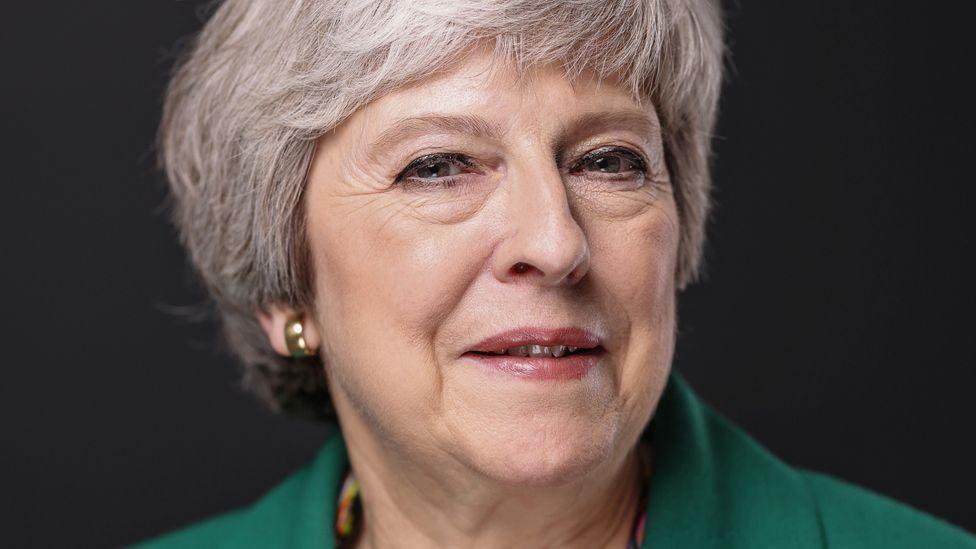
- Published30 July 2018
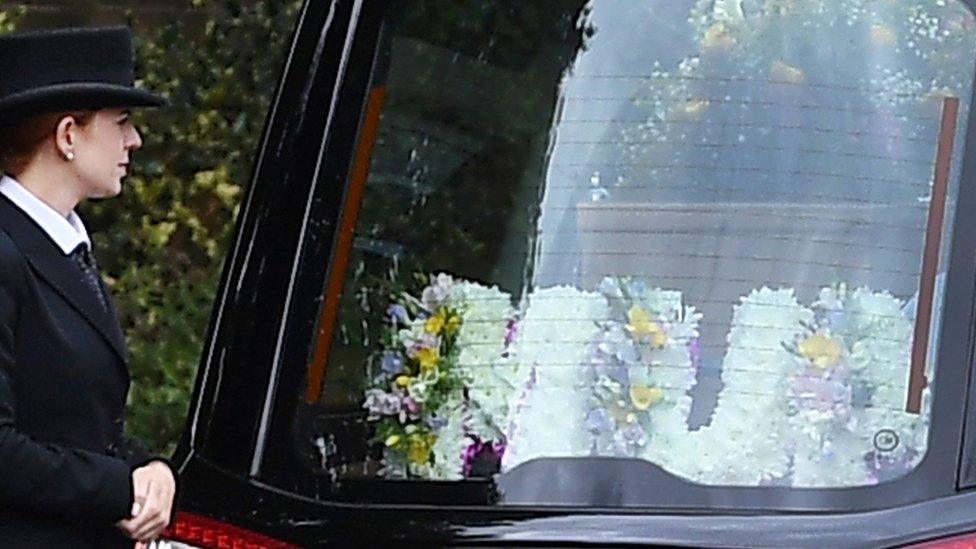
- Published4 March 2020
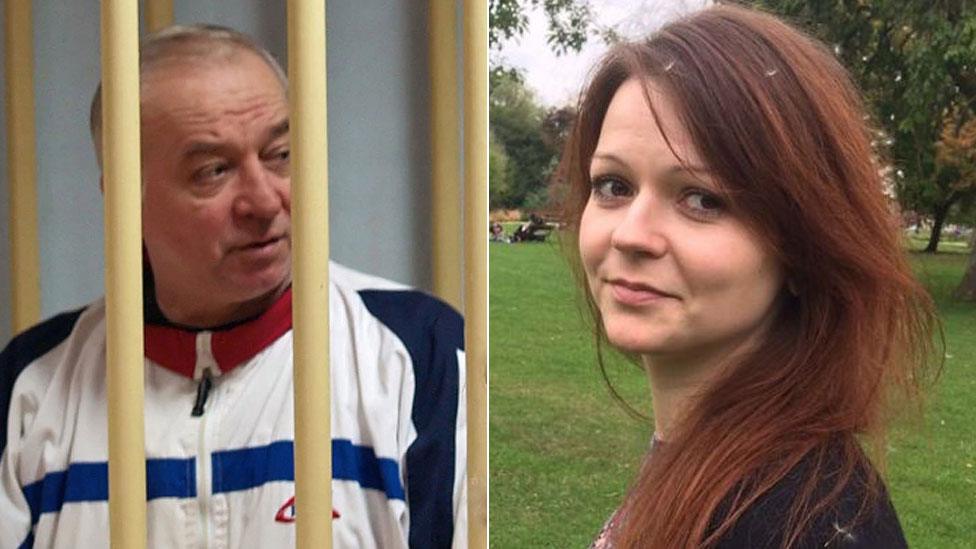
- Published3 December 2024
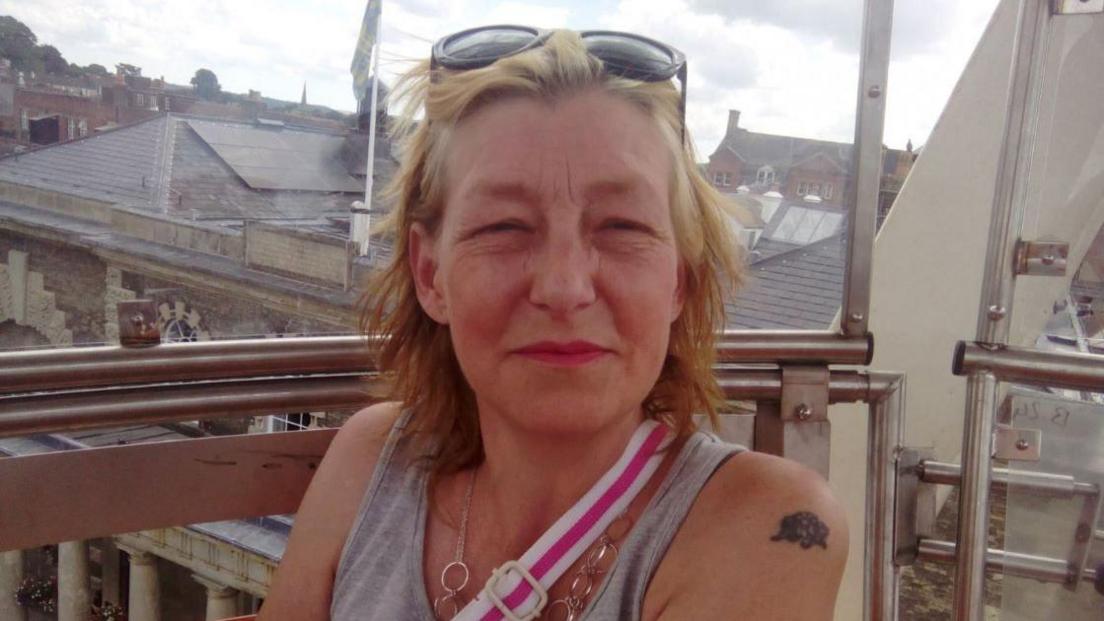
- Published26 November 2024
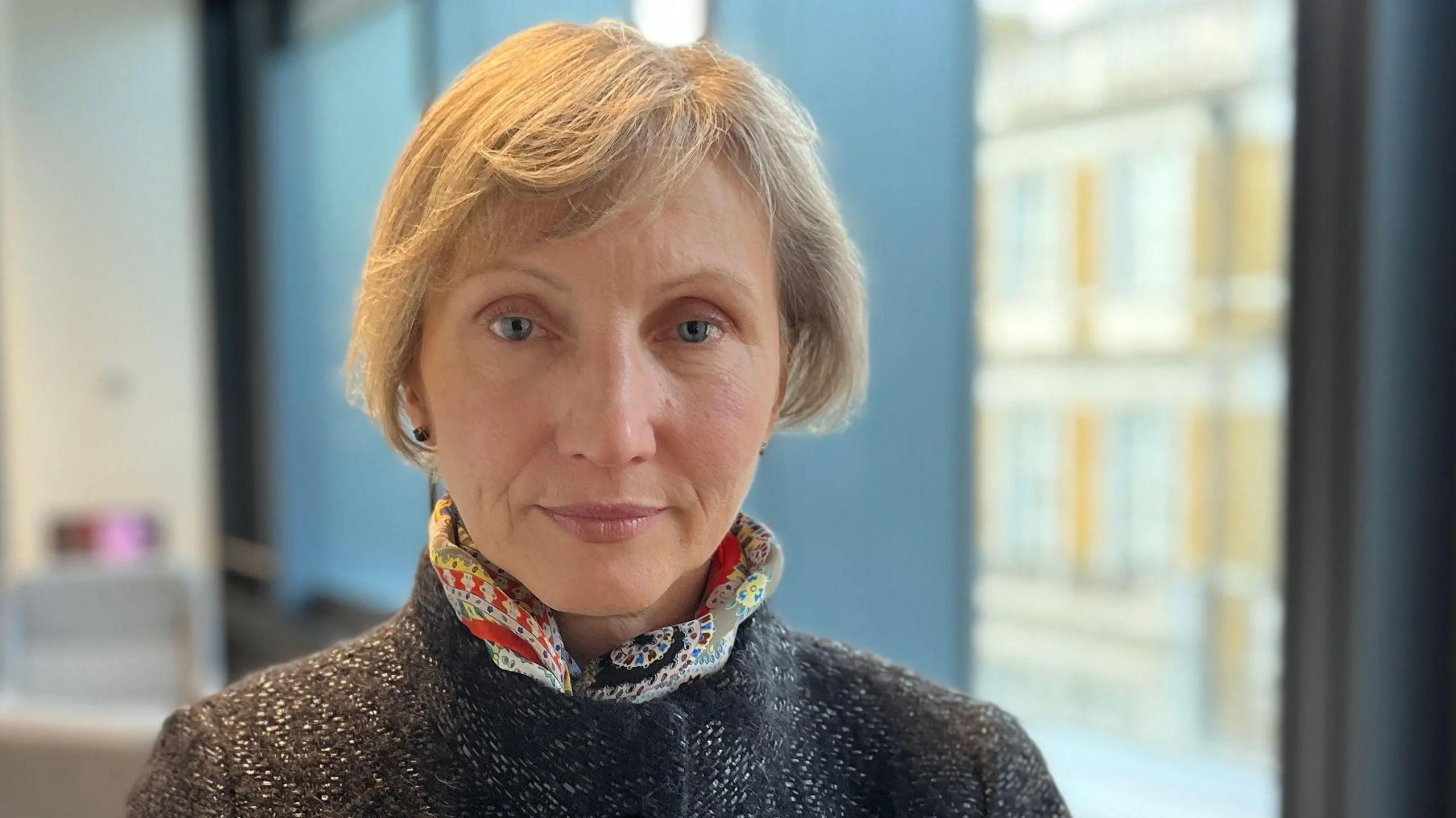
- Published5 November 2024
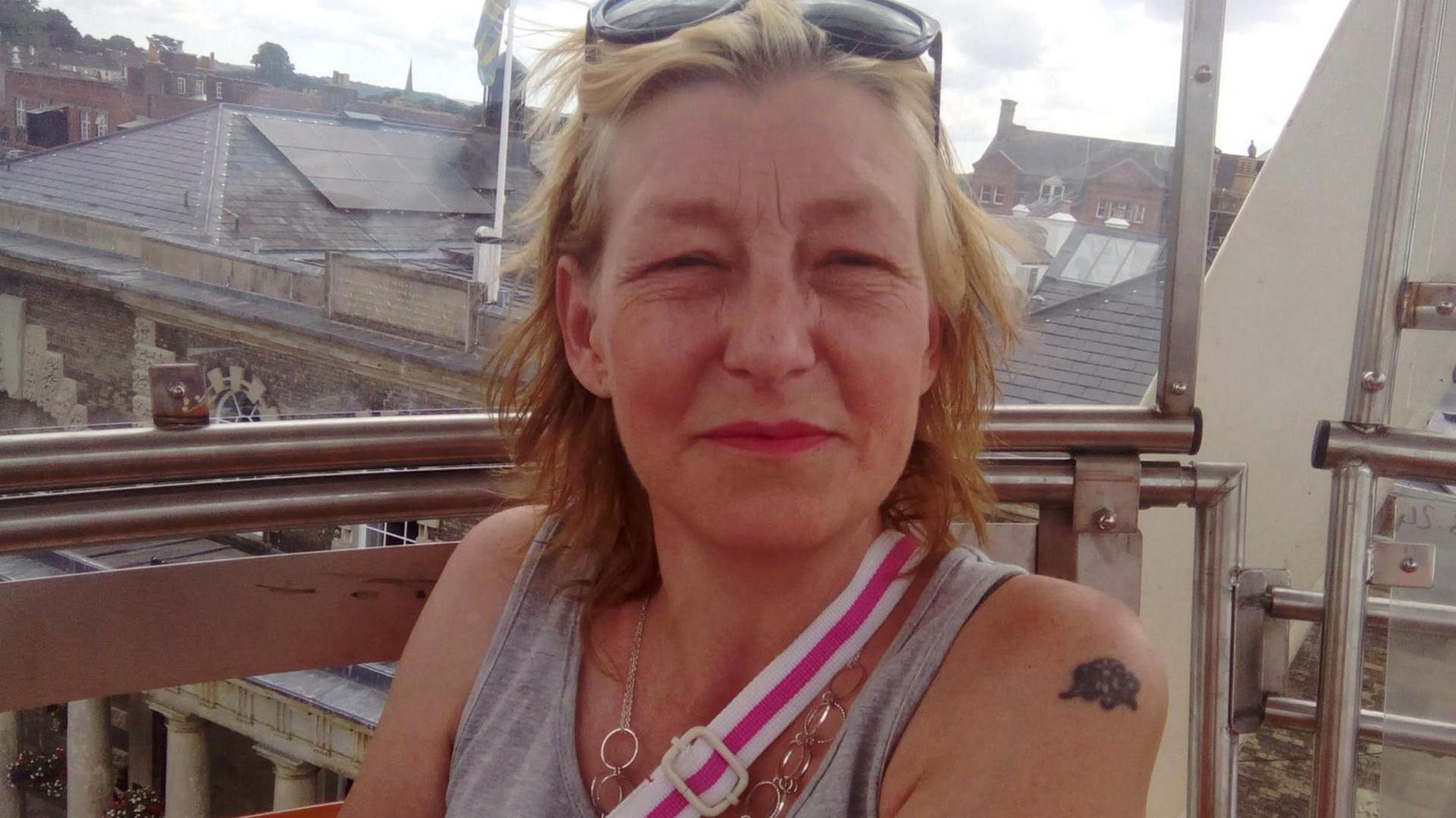
- Published19 November 2024
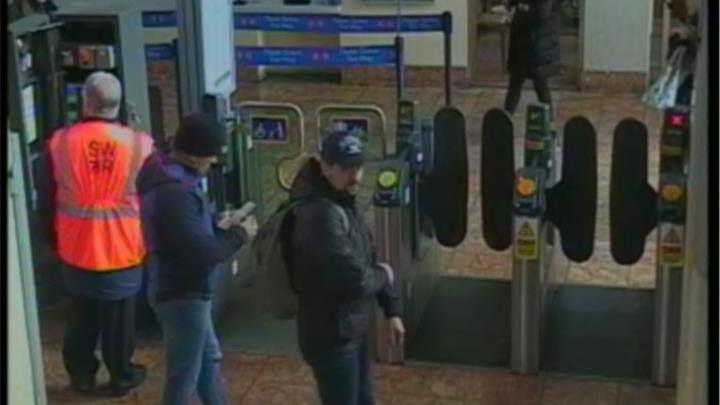
- Published15 October 2024
